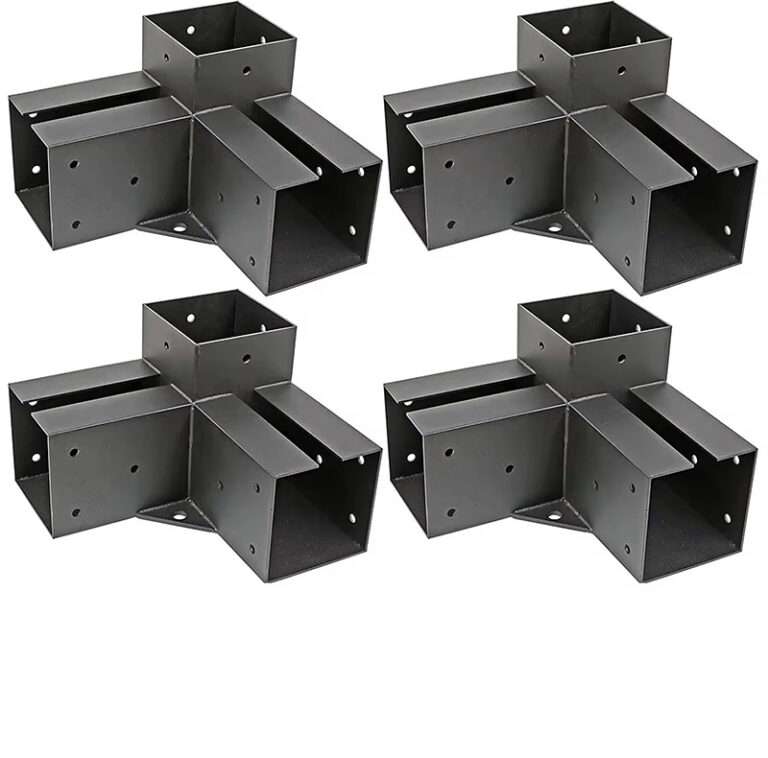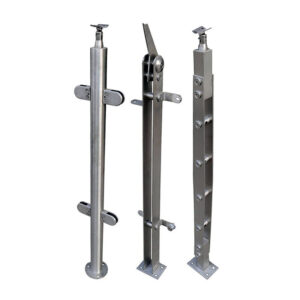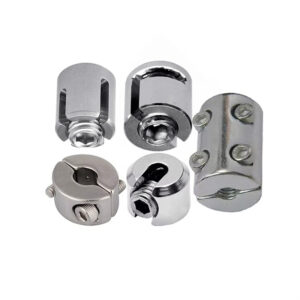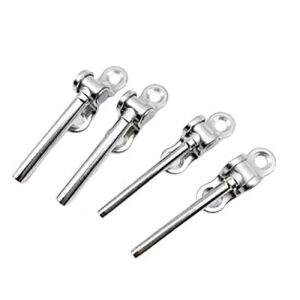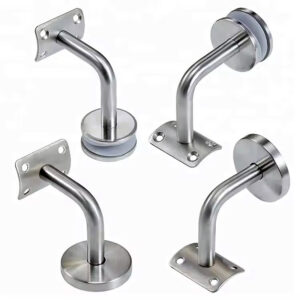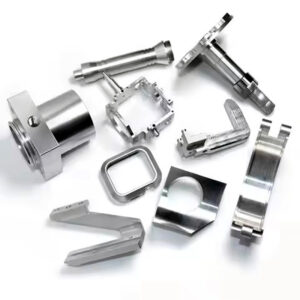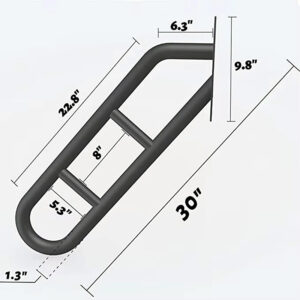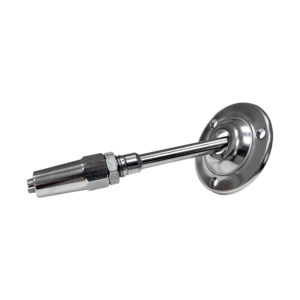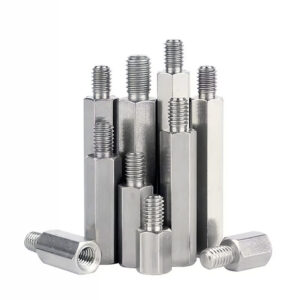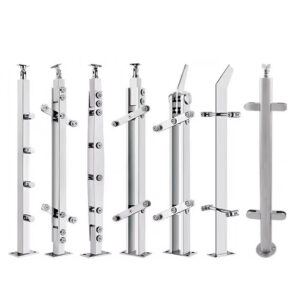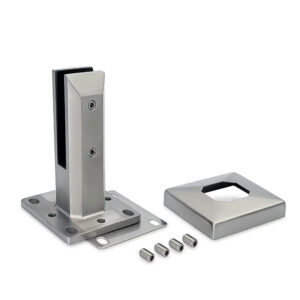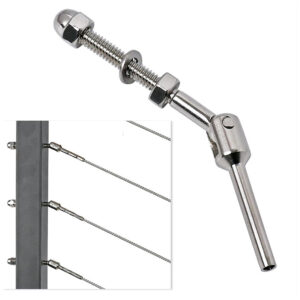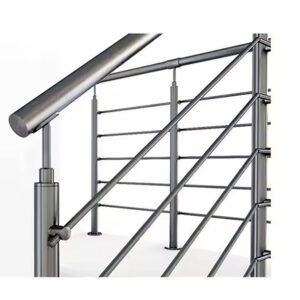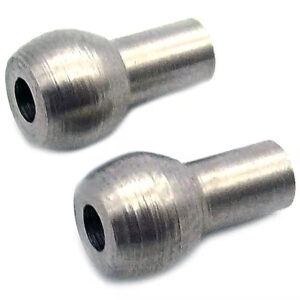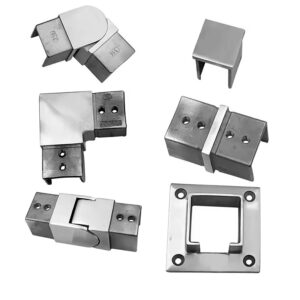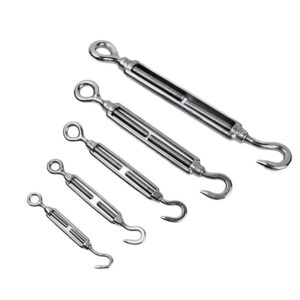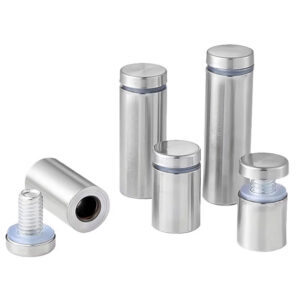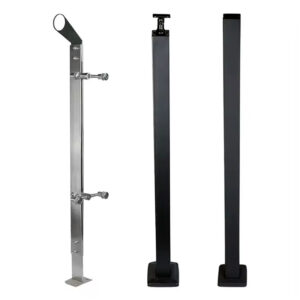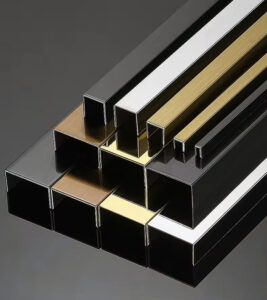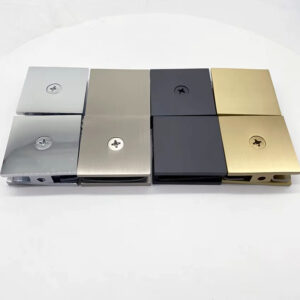Finding rail connector sleeves that deliver consistent performance isn’t just about specifications—it’s about understanding how these critical components function in real installations. After 23 years of manufacturing stainless steel railing hardware, we’ve learned that contractors need connector sleeves that fit right the first time, perform under load, and integrate seamlessly with existing systems. The difference between a smooth installation and costly delays often comes down to precision manufacturing and proper material selection.
Core Rail Connector Sleeve Solutions
Standard Connector Configurations
Our rail connector sleeves provide reliable joining solutions for various railing configurations. These precision-machined components ensure consistent alignment and structural integrity across different project requirements.
Straight Rail Connectors: Standard sleeves for continuous handrail runs with tight tolerances that eliminate gaps and wobble. Available in 1.5″, 2″, and 2.5″ diameter configurations to match common railing specifications.
Adjustable Angle Connectors: Sleeve systems that accommodate slope changes and directional transitions without custom fabrication. Adjustment ranges from 0° to 45° maintain structural requirements while simplifying field installation.
Modular Connection Systems: Integrated sleeve and bracket combinations that streamline installation processes. Pre-engineered components reduce field measurement and cutting time by approximately 30%.
Custom Connector Manufacturing: ODM capabilities for unique applications requiring specific dimensions or configurations. Our manufacturing precision ensures custom connectors integrate properly with standard components.
Material Selection for Performance
304 Stainless Steel Applications: Cost-effective solution for interior and standard outdoor installations. Provides adequate corrosion resistance for most commercial and residential projects with proper maintenance protocols.
316L Marine Grade Connector Sleeves: Enhanced corrosion resistance for coastal environments, chemical processing facilities, and high-moisture applications. The addition of molybdenum significantly extends service life in aggressive environments.
Surface Finish Options: Brushed finish provides practical durability and conceals minor scratches from installation and use. Mirror polish offers enhanced appearance for high-visibility applications but requires more maintenance attention.
▶ Get Technical Specifications ◀
Material Performance Comparison
| Material Grade | Environment | Expected Service Life | Maintenance Requirements | Cost Factor |
|---|---|---|---|---|
| 304 Stainless | Interior/Standard | 15-20 years | Annual cleaning | 1.0x |
| 304 Stainless | Coastal (>1 mile) | 10-15 years | Quarterly maintenance | 1.0x |
| 316L Marine | Coastal/Marine | 20-25 years | Semi-annual cleaning | 1.3x |
| 316L Marine | Chemical/Industrial | 15-20 years | Quarterly inspection | 1.3x |
Rail Connector Fabrication Requirements
Precision Manufacturing Standards
Commercial rail connector components require consistent dimensional accuracy to ensure proper fit and structural performance. Our manufacturing processes maintain tolerances within ±0.002″ for critical dimensions, eliminating field adjustment requirements.
Wall Thickness Specifications: Minimum wall thickness of 0.125″ for standard applications, with 0.188″ thickness available for high-load installations. Consistent wall thickness prevents stress concentrations and extends component life.
Internal Surface Quality: Smooth internal surfaces reduce installation friction and prevent galling during assembly. This attention to surface finish reduces installation time and prevents component damage.
Weld Preparation: Precision-cut weld prep ensures consistent penetration and joint quality. Properly prepared connector sleeves create reliable structural connections that meet building code requirements.
Installation Efficiency Features
Pre-Machined Alignment: Connector sleeves manufactured with integral alignment features reduce field measurement and adjustment time. Standard configurations install 40% faster than field-fabricated connections.
Standard Tool Compatibility: All connector sleeves designed for installation with common contractor tools. No specialized equipment required for standard installations.
Quality Control Testing: Each production run undergoes dimensional verification and fit testing. This manufacturing precision ensures components work as specified in field conditions.
Real-World Applications and Performance
Commercial Project Results
Office Building Handrails: Recent 12-story office installation used standardized connector sleeves throughout 2,400 linear feet of railing. Modular approach reduced installation time from projected 8 days to 5.5 days, with zero field modification requirements.
Retail Center Applications: Shopping center project utilized adjustable angle connectors for curved and sloped sections. Standard components handled 80% of connections, with custom solutions only needed for unique architectural features.
Educational Facility Installation: University dormitory project specified marine grade connector sleeves for durability in high-traffic areas. After 3 years, maintenance requirements remain minimal with quarterly cleaning sufficient.
Industrial and Marine Applications
Manufacturing Plant Infrastructure: Chemical processing facility required 316L marine grade components for corrosive environment exposure. Connector sleeves show minimal degradation after 5 years of continuous service in aggressive conditions.
Coastal Property Solutions: Oceanfront commercial development used marine grade connector sleeves throughout exterior railing systems. Salt spray exposure testing confirmed expected 20+ year service life with proper maintenance.
Marina and Dock Applications: Marine facility installations demonstrate the importance of proper material selection. 316L connector sleeves maintain structural integrity while 304 components in similar environments required replacement within 7 years.
▶ Discuss Your Project Requirements ◀
Installation Time and Cost Analysis
| Project Type | Linear Feet | Standard Connectors | Custom Requirement | Installation Days | Cost Efficiency |
|---|---|---|---|---|---|
| Residential | 200-500 | 90% coverage | Minimal | 2-3 days | High |
| Commercial | 500-2000 | 85% coverage | 15% custom | 4-8 days | Good |
| Industrial | 1000+ | 75% coverage | 25% custom | 6-12 days | Variable |
| Marine/Coastal | Variable | 80% coverage | 20% custom | +20% time | Premium |
Installation and Technical Support
Fabrication Integration
Understanding how connector sleeves integrate with overall fabrication processes helps contractors optimize project timelines. Standard sleeves work with common pipe cutting and preparation equipment, while custom solutions may require specialized tooling.
Field Assembly Considerations: Pre-fabricated sections using standard connector sleeves allow for shop assembly under controlled conditions. This approach improves quality control and reduces weather-dependent field time.
Inventory Management: Standardized connector components simplify inventory requirements for distributors and contractors. Common sizes cover 80% of typical applications, reducing stock complexity.
Technical Documentation: Complete installation specifications and connection details provided with each order. Clear documentation prevents field confusion and reduces callback requirements.
Quality Assurance and Testing
Load Testing Compliance: All connector sleeves undergo testing to verify structural performance under design loads. Test results available for engineering review and code compliance documentation.
Dimensional Verification: Statistical process control ensures consistent dimensions across production runs. This manufacturing precision eliminates fit-up problems during installation.
Corrosion Resistance Testing: Material samples undergo accelerated corrosion testing to verify expected service life. Test data supports material selection for specific environmental conditions.
▶ Connect with Our Engineering Team ◀
Frequently Asked Questions
Q: How do I select between 304 and 316L stainless steel for connector sleeves?
A: Choose 304 stainless for interior applications and standard outdoor exposure more than 1 mile from saltwater. Select 316L marine grade for coastal environments, chemical exposure, or applications requiring extended service life. Consider maintenance resources and budget—316L costs 30% more initially but often provides better long-term value in challenging environments.
Q: What tolerances should I expect for precision rail connector hardware?
A: Standard connector sleeves maintain ±0.002″ tolerance on critical dimensions. Custom connector manufacturing can achieve tighter tolerances when required for specific applications. Consistent tolerances eliminate field fitting problems and reduce installation time.
Q: Can connector sleeves accommodate thermal expansion in long railing runs?
A: Standard rigid connectors work well for runs under 40 feet. Longer installations benefit from expansion joints integrated into the railing system design. We provide technical guidance on expansion joint placement and selection based on climate conditions and material specifications.
Q: How much installation time do standardized components typically save?
A: Contractors report 30-40% reduction in connection time using precision-manufactured connector sleeves versus field fabrication. The exact savings depend on project complexity and crew experience, but standardized components consistently reduce field labor requirements.
Q: What documentation do you provide for code compliance?
A: Complete material certifications, load testing results, and corrosion resistance data accompany each order. Engineering specifications include relevant ASTM standards and building code references. Technical support available for specific compliance questions during design phases.
Q: Do you offer custom connector solutions for unique applications?
A: Yes, our ODM capabilities handle custom connector manufacturing for special requirements. Custom solutions integrate with standard components when possible to optimize cost and availability. Design assistance available to develop cost-effective custom solutions.
“Standardized railing hardware components reduce installation time up to 40% compared to field fabrication methods.” —Construction Industry Research Institute
“Proper material selection for connector hardware significantly impacts long-term maintenance costs and system reliability.” —American Institute of Steel Construction
Connector Selection and Specification Guide
Performance-Based Selection Criteria
Choosing appropriate rail connector sleeves requires understanding actual service conditions rather than just following generic specifications. Environmental exposure, load requirements, and maintenance capabilities all influence optimal material and configuration selection.
Environmental Assessment: Evaluate actual exposure conditions including humidity, chemical contact, and temperature cycling. Coastal environments require marine grade materials within 5 miles of saltwater, while interior applications can utilize standard 304 stainless with confidence.
Load and Safety Factors: Building codes specify minimum load requirements, but practical installations benefit from additional safety margins. Connector sleeves with 25% additional load capacity provide long-term reliability insurance.
Maintenance Reality: Consider actual maintenance resources and schedules. Marine grade materials cost more initially but reduce maintenance requirements and extend replacement intervals significantly.
Integration with Existing Systems
Compatibility Verification: Standard connector sleeves work with common railing tube dimensions and wall thicknesses. Verify compatibility early in design phases to avoid field modifications.
System Modularity: Esang Metal connector sleeves integrate with standard mounting hardware and railing components. This modularity simplifies inventory management and enables consistent installation procedures across different project types.
Future Expansion Considerations: Standardized components facilitate future modifications and expansions. Using common connector types throughout initial installation simplifies future maintenance and modification requirements.
▶ Start Your Project Discussion ◀
Rail connector sleeves represent critical components in professional railing systems, where precision manufacturing and appropriate material selection directly impact installation efficiency and long-term performance. Our 23 years of manufacturing experience demonstrates that successful projects require understanding both technical specifications and practical installation realities. Whether you’re specifying standard configurations or require custom connector manufacturing solutions, proper component selection and reliable supply chain support make the difference between smooth installations and costly delays.
